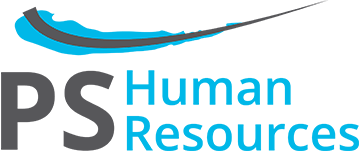Self-Isolation
The government’s Health Protection (Coronavirus, Restrictions) (Self-Isolation) (England) Regulations 2020 came into force on 28th September 2020
- People in England are required by law to self-isolate if they test positive for coronavirus, or if they are contacted by NHS Test and Trace; and
- Employers must not knowingly allow them to attend the workplace
Period of Isolation:
- A 10-day period of isolation runs from either:
- The day when symptoms started (if person is symptomatic); or
- The date the test was taken; or
- The date that the person was notified that they had been in contact with someone who has tested positive for coronavirus
- If the asymptomatic person is self-isolating and then develops symptoms, they will need to re-start their 10 day isolation from the day their symptoms began.
- If that person lives with others, all the members of that household must stay at home and self-isolate for 14 days.
Employee / Employer duties under the Regulations
Employees
- Section 8 of the Regulations states that if an employee is required to self-isolate, and they were meant to be at work during their period of isolation, the employee must notify their employer of the requirement to self-isolate, as well as providing the start and end dates for the period of isolation.
- This information is to be provided to their employer as soon as practicable and certainly before the employee was next due to start work during the isolation period.
Employers
- Section 7 of the Regulations states that where they have been notified that one of their employees is self-isolating, the employer must not knowingly allow that person to attend any place other than where that person should be isolating.
Failure to comply
- Regulations have been placed into legislation – failure to comply could mean that an offence has been committed and could result in a fixed penalty notice being issued:
- First fixed penalty notice = fine of £1,000.
- Second fixed penalty notice = £2,000.
- Third fixed penalty notice = £4,000.
- Fourth fixed penalty notice and any subsequent fixed penalty notice = £10,000
- Where a person contravenes the Regulations knowingly, and then comes into close contact with another person or group or is reckless as to the consequences of their actions
- First fixed penalty notice is £4,000
- Any subsequent fixed penalty notice issued is £10,000
Practical steps employers should take in light of these Regulations
- Ensure that your employees / line managers are aware of the requirement to self-isolate in certain circumstances.
- Ensure that employees understand the need to notify their employer as soon as reasonably practicable if they need to self-isolate.
- If notified that an employee needs to self-isolate, ensure that that person is not required to come into the workplace and if possible, either:
- Ensure that that person is able to work from home.
- Perhaps provide that person with an alternative role so that they can work from home; or
- If they are not able to work from home or undertake an alternative role that allows them to work from home, the existing legislation confirms that that employee is entitled to statutory sick pay for that period of isolation
Quarantine
If employees return to the UK from certain countries, they made need to self-isolate for up to 14 days when they arrive. The current list can be found by clicking here
Exemptions
- Some people do not have to self-isolate on arrival into the UK because of the jobs that they do:
- g. crown servants, those who undertake regular work abroad, bus and coach drivers, drivers of good vehicles, network rail workers, seamen and masters etc., aircraft pilots and crew, specialist technical workers (goods, waste, power), postal workers and IT and telecom workers
- Beware however of the stipulation “…whose expertise is required to provide an essential or emergency response / urgent or essential work”.
Practical advice for employers
Make the rules clear to your employees
-
- When they need to isolate
- When they need to quarantine
- What to do about holidays?
- What will happen if there are last minute changes to destination status
- Be clear if isolation / quarantine will be paid or unpaid leave
- Changes to holiday request forms – perhaps declaration of destination
Dealing with different types of employee:
- who can work from home; who cannot? Allow those who can effectively do so work from home so that they can continue to be paid
Breaching the Regulations as a possible disciplinary offence
- Early return when should be self-isolating
- Failing to declare a need to isolate/quarantine
Ensure that you have a policy to include the actions as a result of breaching regulations – set out the offence and be consistent with your approach and make sure that you communicate and circulate the relevant information.
Here at Team PSHR we understand that all these new regulations and guidelines can be difficult to unpick, so if you need help simplifying the complex, please get in touch with one of our consultants!





